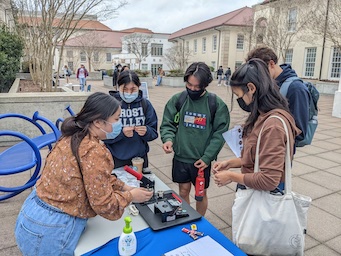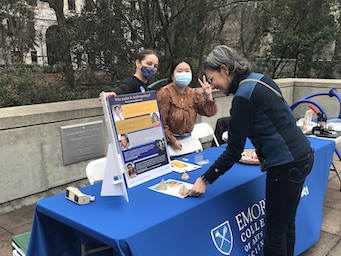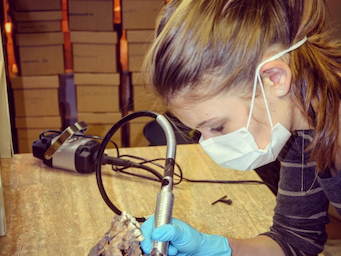Happy #AnthroDay! The Anthropology Department and Emory Anthropology Student Society (EASS) celebrated by hosting an information table and button-making station, where students made their own anthropology-themed buttons. Students also had the opportunity to share some things they love about anthropology. Here are some of the responses:

- the diverse subfields
- it asks us to think about and account for human values!
- So much! People, the brain, evolution, and more.
- It’s my life!
- Great classes
- I love learning about other cultures and people around the world.
- My class went to the Carlos Museum to see Marie Watts!
You can check out more about Anthropology Day at americananthro.org and by following #AnthroDay!



